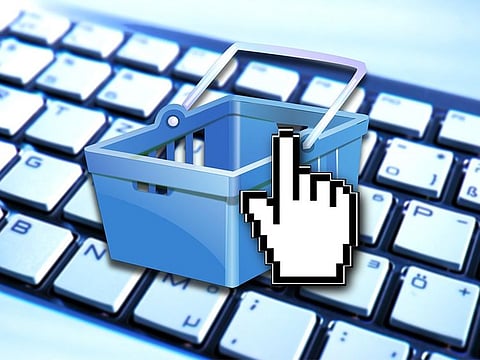Pandemic fueled an ecommerce boom in MENA, but what next?
Faster adoption of digital payments can help with shipping greater volumes

The new decade has seen consumers and businesses increasingly shift from offline to online buying. COVID-19-induced lockdowns and social distancing measures saw global spending on the Top 100 e-marketplaces in 2020 equate to $2.67 trillion. In the Middle East and North Africa, ecommerce grew faster than anywhere else in the world with an estimated 209 million consumers transitioning to online shopping during the height of the pandemic. The market is expected to reach $49 billion in 2022.
The UAE and Saudi Arabia have benefitted the most with businesses reporting an average increase of 82 per cent in the use of their ecommerce services. The majority of these respondents also said that they expect ecommerce to become universal in the coming years.
With it commonly believed that ecommerce will be globally adopted in the coming years, traditional methods of shopping will likely become less dependable. As this transition takes place, the MENA region must be strategic to ensure the region’s B2B sector continues flourishing with cross-border buying and selling.
Where MENA has lacked
One long-time barrier to ecommerce adoption in the region was the transition from in-person to online payments. However, the constraints of COVID-19 have helped overcome this by driving a sharp uptick in contactless digital payments.
Between 2020-21, 85 per cent of consumers in MENA made purchases from brands or retailers outside of their country. A significant number of these purchases were made on online markets, where buyers from MENA and wholesale suppliers from around the world congregate to do business.
The region serves as an ideal trading hub between Europe, Asia, and Africa. Key players in MENA’s ecommerce space should accordingly take advantage of this by continually integrating seamless applications, like contactless digital payments, so that customers are incentivized to use and stay loyal to such services.
Liberated business procurement
Ecommerce, paired with tech advancements, has brought forth numerous advantages. This includes much quicker transactions; there is no need for buyers to go from vendor to vendor or wait to be served as online marketplaces operate around the clock on a 24/7/365 basis.
Similarly, if you own or run an ecommerce business, continually prioritizing a digital-first procurement strategy will help you stay competitive when it comes to ‘stocking the shelves’ of your online marketplace.
Traditionally, procurement has been a slow and demanding process that depended on multiple factors including requests for quotations (RFQs), detailed spreadsheets, and physical paperwork. Completing product orders would be an extensive process, as the manual process of finding dependable supplies, ensuring stock availability, and arranging orders and deliveries - either through back-and-forth emails or phone calls - could be tedious and neverending.
This is no longer an issue. Incorporating efficient procurement processes, within your ecommerce ecosystem, will help you source quality products at affordable prices - without distance being a factor.
Future of shopping
Established online marketplaces enable buyers to browse a million or more unique products, from thousands of sellers based in scores of countries, in an organized, customizable, and reliable way. Moreover, they allow buyers multiple ways to pay for products like credit card payments, bank transfers, and Buy Now Pay Later (BNPL) - which have become popular options in MENA - through secure channels.
On the other hand, many sellers leverage lower material, manufacturing, or labor costs in their country, enabling them to offer lean wholesale prices on bulk purchases to MENA buyers, which allow them to competitively undercut their competitors with buyers benefitting at large.
MENA ecommerce players who effectively adopt these practices will retain long-term relevance. Additionally, innovating, decentralizing, and ensuring your operations are agile will keep you at the forefront of the ecommerce marketplace, especially as global growth projections hold steady between now and 2030.




